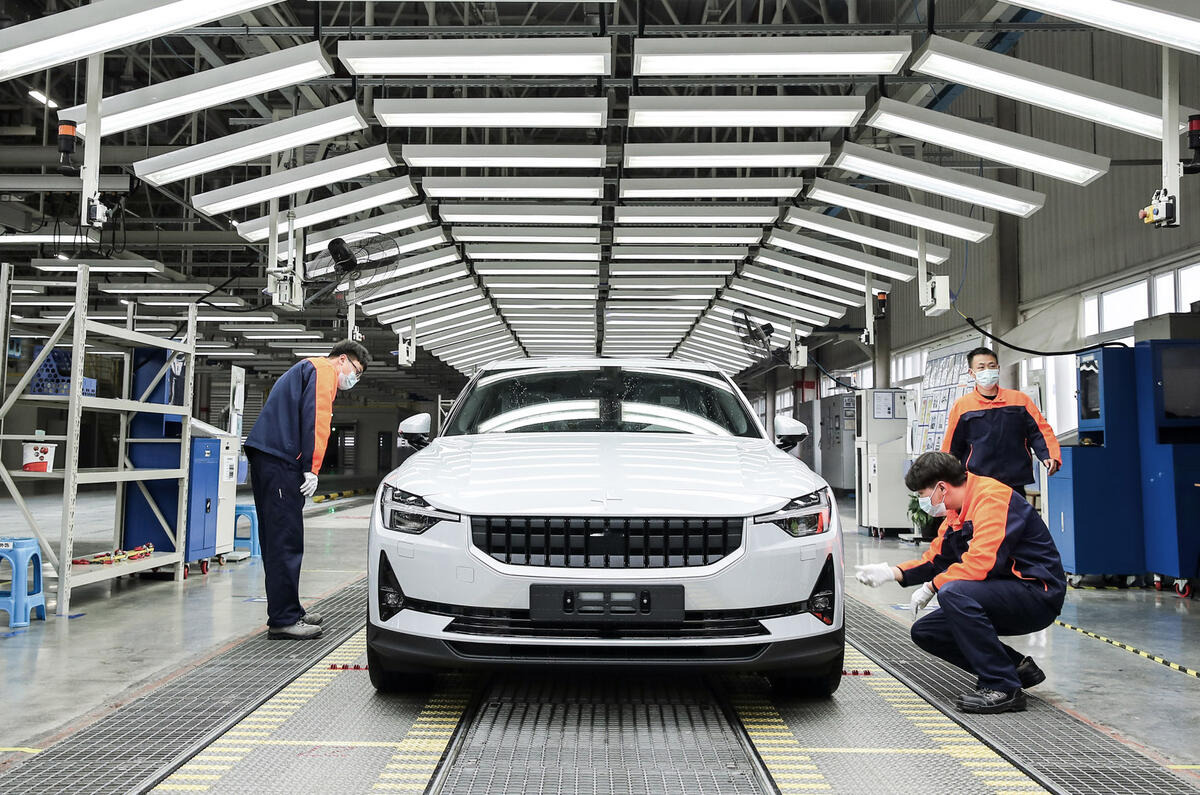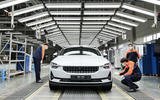Polestar, Volvo’s EV spin-off brand, has detailed the lifetime climate impact of its new 2 fastback – claiming it’s “spearheading a movement for transparency throughout the automotive industry”.
As well as detailing the energy and CO2 produced in the manufacture of the 2 compared with a petrol-engined Volvo XC40, Polestar said it is planning to reveal more about the wider environmental impact of building electric vehicles.
Company boss Thomas Ingenlath said: “Car manufacturers have not been clear in the past with consumers on the environmental impact of their products. That’s not good enough. We need to be honest, even if it makes for uncomfortable reading.”
The firm’s analysis showed the 2 has a lower environmental impact over its lifetime than a petrol-engined XC40, but it also stated that “going green isn’t quite as simple as just buying an electric car”.
It added: “It’s tempting to assume that we can achieve a sustainable and emission-free future by simply getting everyone to drive electric cars. But the truth is a lot more complicated.”

Polestar says manufacturing a 2 creates 24 tonnes of CO2e (CO2 equivalents), compared with just 14 tonnes of CO2e to make a petrol-engined XC40. This extra CO2 is largely attributable to the production of the battery pack needed for the EV. Depending on the source of power used to charge the Polestar during its lifetime, the EV will eventually offset the XC40’s lower manufacturing CO2 footprint, becoming the ‘greener’ of the two cars.
There has been considerable controversy in the automotive industry about the ‘embedded energy’ in battery packs, with claims that manufacturing large batteries particularly results in a ‘carbon footprint’ that makes nonsense of claims that EVs are the energy-efficient future of motoring.














Join the debate
Add your comment
Or
Or if you didn't buy a new car and kept driving around in your existing one that emitted maybe 0.00015 tons/km (150g/km) of CO2, then you're gonna have to travel a pretty long way to achieve the 14tons emitted producing that new XC40 petrol car.
I get it, improving air quality and therefore saving lives is undoubtedly a good thing but, let's be honest, building new cars will always be more about economics (keeping people employed) than it is the environment and health.
The first step is someone, in this case Polestar, at least honestly acknowledging the environmental impact and only then can you properly move forward to reduce emissions throughout the life cycle.
harf wrote:
Actual carbon emissions from an XC40 class vehicles is around 400g/mile once the actual real word efficiency of such a vehicle is taken into account plus the energy to make and distribute the petrol.
So yes replacing a petrol car with a slightly more efficient petrol car is not good for CO2, replacing it with an electric car definitely is.
As I said in another post Tesla has got the CO2 cost per car down to around 14 tonnes and this will fall in line with the developments in the general economy.
Location Location
So in certain countries like norway with 99.9% green power payback will be in maybe as little as 20k miles. Anyhow every year the pay back time comes down
Who won’t be recharging with renewables?
The first generation of ev buyers did so for almost exclusively environmental reasons, so will have been recharging via green energy packages at home.
Now that EVs are so heavily incentivised for company car users, I wonder how many of these people have opted for more expensive green energy at home?
Perhaps we need legislation to ensure that to benefit from all the tax incentives people must prove that they're using zero carbon electricity at home?
Green energy
I just had a look at a comparison site and it couldn't match the tariff I'm paying with Octopus. So in answer to your question, I suspect most drivers of EVs are using green energy because it's cheaper.
On another note, VW, who've never been known to lie, had very similar figures for the electric golf a while ago, as the Chinese government are producing for the Polestar.